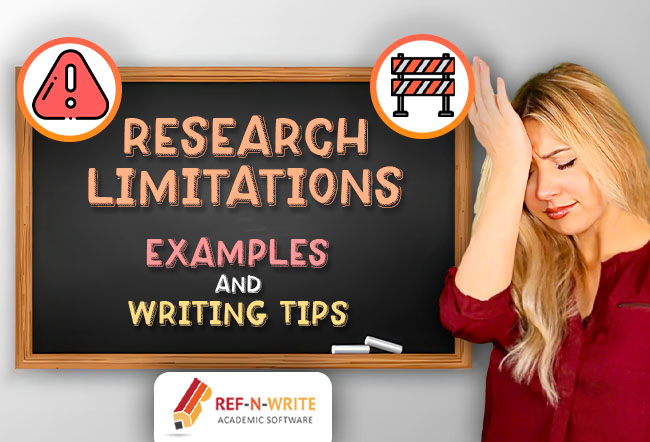Training videos | Faqs


Mastering Verb Tenses in Literature Reviews
In this blog, we will see what tense you should use in the literature review section of your research paper. We will look at some examples of literature review excerpts from published research papers and understand the tenses used in them.
1. Which Tense to Use?
You may have to use multiple tenses in your literature review depending on what you are saying. The present tense is generally used in statements to introduce the literature review, and the past tense is typically used when you are talking about specific papers. The following table summarizes different types of statements you might typically include in your literature review and the corresponding tenses you should use.
2. Usage Example #1
In the first statement, we make a general statement about the topic by saying that this topic has been studied extensively in the literature, and therefore we have used the present tense. In the second sentence, we say that although there has been a lot of research on this topic, it is still relevant today and therefore we have used the present perfect tense.
✔ Example of simple present & present perfect tense use This is widely reported and extensively explored in the literature. This has been of interest for a considerable period, ranging from the early 90s. _ Broad summary (Simple Present) _ Ongoing situation (Present Perfect)
3. Usage Example #2
In the first statement, we begin the literature review by saying that there are many techniques available in the literature to combat weight gain. This statement is only a general summary of previous research on this topic. So we used the present perfect tense. Then, when we then talk about individual works from the literature, we present their results in the past tense.
✔ Example of present perfect & past tense use A number of solutions have been proposed to deal with the problem of weight gain and obesity. He simplest approach was proposed by Lee et al. (2003) which involves fasting. Wang et al. (2010) proposed an alternative solution of using an intragastric balloon. _ Broad summary (Present Perfect) _ Specific papers from past (Past Tense)
4. Usage Example #3
In the following example, in the first sentence we are talking about a collective finding that is generally accepted in the field, and therefore we have used the present perfect tense. In the second statement, we are talking about a finding from a specific work conducted in the past and have therefore used the past tense.
✔ Example of present perfect & past tense use It has been shown that there is a direct correlation between social media and children’s mental health[1-10]. Recently, Elan et al. [11] showed that these findings also applies to teenagers and older population. _ Accepted findings (Present Perfect) _ Specific paper from past (Past Tense)
5. Usage Example #4
In the example below, we talk about past research papers and that’s why we have used the past tense.
✔ Example of past tense use In the initial work presented by Kim et al. (2004), they showed that there is a direct link between Vitamin C and obesity. Smith et al. (2006) replicated this finding in a much larger study. Recently, it was pointed out by Young et al. (2010) that Vitamin C is also related to many other diseases. _ Specific papers from past (Past Tense)
If you have any questions, please drop a comment below, and we will answer as soon as possible. We also recommend you to refer to our other blogs on academic writing tools , academic writing resources , academic writing phrases and research paper examples which are relevant to the topic discussed in this blog.
Similar Posts

Limitations in Research – A Simplified Guide with Examples
In this blog, we provide tips for presenting study limitations in your paper and provide some real-world examples.

How to Write Catchy Research Paper Titles with Examples
The title of your paper should be catchy yet informative. Let’s dive into some tips and tricks to ensure your title stands out in the academic crowd.

Improve Academic Writing Skills Using REF-N-WRITE Scientific Writing Software Tool
In this blog, we explain why academic writing is a difficult skill to master, and how students can use Ref-n-write to get better at it.

Technical Terms, Notations, and Scientific Jargon in Research Papers
In this blog, we will teach you how to use specialized terminology in your research papers with some practical examples.

Academic Phrases for Writing Literature Review Section of a Research Paper
In this blog, we discuss phrases related to literature review such as summary of previous literature, research gap and research questions.

Literature Review Examples and Writing Tips
In this blog, we will go through many literature review examples and understand different ways to present past literature in your paper.
Leave a Reply Cancel reply
Your email address will not be published. Required fields are marked *
Save my name, email, and website in this browser for the next time I comment.
- 10 Share Facebook
- 0 Share Twitter
- 1 Share LinkedIn
- 0 Share Email
Dissertations & projects: Tenses
- Research questions
- The process of reviewing
- Project management
- Literature-based projects
On this page:
“You will use a range of tenses depending on what you are writing about . ” Elizabeth M Fisher, Richard C Thompson, and Daniel Holtom, Enjoy Writing Your Science Thesis Or Dissertation!
Tenses can be tricky to master. Even well respected journals differ in the guidance they give their authors for their use. However, their are some general conventions about what tenses are used in different parts of the report/dissertation. This page gives some advice on standard practice.

What tenses will you use?

There are exceptions however, most notably in the literature review where you will use a mixture of past , present and present perfect tenses (don't worry, that is explained below), when discussing the implications of your findings when the present tense is appropriate and in the recommendations where you are likely to use the future tense.
The tenses used as standard practice in each of these sections of your report are given and explained below.
In your abstract
You have some leeway with tense use in your abstract and guidance does vary which can sometimes be confusing. We recommend the following:
Describing the current situation and reason for your study
Mostly use the present tense, i.e. "This is the current state of affairs and this is why this study is needed."
Occasionally, you may find the need to use something called the present perfect tense when you are describing things that happened in the past but are still relevant. The present perfect tense uses have/has and then the past participle of the verb i.e. Previous research on this topic has focused on...
Describing the aims of your study
Here you have a choice. It is perfectly acceptable to use either the present or past tense, i.e. "This study aims to..." or "This study aimed to..."
Describing your methodology
Use the past tense to describe what you did, i.e. "A qualitative approach was used." "A survey was undertaken to ...". "The blood sample was analysed by..."
Describing your findings
Use the past tense to describe what you found as it is specific to your study, i.e. "The results showed that...", "The analysis indicated that..."
Suggesting the implications of your study
Use the present tense as even though your study took place in the past, your implications remain relevant in the present, i.e. Results revealed x which indicates that..."
Example abstract
An example abstract with reasoning for the tenses chosen can be found at the bottom of this excellent blog post:
Using the Present Tense and Past Tense When Writing an Abstract
In your methodology
The methodology is one of the easiest sections when it comes to tenses as you are explaining to your reader what you did. This is therefore almost exclusively written in the past tense.
Blood specimens were frozen at -80 o C.
A survey was designed using the Jisc Surveys tool.
Participants were purposefully selected.
The following search strategy was used to search the literature:
Very occasionally you may use the present tense if you are justifying a decision you have taken (as the justification is still valid, not just at the time you made the decision). For example:
Purposeful sampling was used to ensure that a range of views were included. This sampling method maximises efficiency and validity as it identifies information-rich cases and ... (Morse & Niehaus, 2009).
In your discussion/conclusion
This will primarily be written in the present tense as you are generally discussing or making conclusions about the relevance of your findings at the present time. So you may write:
The findings of this research suggest that.../are potentially important because.../could open a new avenue for further research...
There will also be times when you use the past tense , especially when referring to part of your own research or previous published research research - but this is usually followed by something in the present tense to indicate the current relevance or the future tense to indicate possible future directions:
Analysis of the survey results found most respondents were not concerned with the processes, just the outcome. This suggests that managers should focus on...
These findings mirrored those of Cheung (2020), who also found that ESL pupils failed to understand some basic yet fundamental instructions. Addressing this will help ensure...
In your introduction
The introduction generally introduces what is in the rest of your document as is therefore describing the present situation and so uses the present tense :
Chapter 3 describes the research methodology.
Depending on your discipline, your introduction may also review the literature so please also see that section below.
In your literature review
The findings of some literature may only be applicable in the specific circumstances that the research was undertaken and so need grounding to that study. Conversely, the findings of other literature may now be accepted as established knowledge. Also, you may consider the findings of older literature to be still relevant and relatively recent literature be already superseded. The tenses you write in will help to indicate a lot of this to the reader. In other words, you will use a mix of tenses in your review depending on what you are implying.
Findings only applicable in the specific circumstances
Use the past tense . For example:
In an early study, Sharkey et al. (1991) found that isoprene emissions were doubled in leaves on sunnier sides of oak and aspen trees.
Using the past tense indicates that you are not implying that isoprene emissions are always doubled on the sunnier side of the trees, just that is what was found in the Sharkey et al. study.
Findings that are still relevant or now established knowledge
Mostly use the present tense , unless the study is not recent and the authors are the subject of the sentence (which you should use very sparingly in a literature review) when you may need to use a mixture of the past and present. For example:
A narrowing of what 'graduateness' represents damages students’ abilities to thrive as they move through what will almost certainly be complex career pathways (Holmes, 2001).
Holmes (2001) argued strongly that a narrowing of what 'graduateness' represents damages students’ abilities to thrive as they move through what will almost certainly be complex career pathways
Both of these imply that you think this is still the case (although it is perhaps more strongly implied in the first example). You may also want to use some academic caution too - such as writing 'may damage' rather than the more definite 'damages'.
Presenting your results
As with your methodology, your results section should be written in the past tense . This indicates that you are accepting that the results are specific to your research. Whilst they may have current implications, that part will not be considered until your discussion/conclusions section(s).
Four main themes were identified from the interview data.
There was a significant change in oxygen levels.
Like with the methodology, you will occasionally switch to present tense to write things like "Table 3.4 shows that ..." but generally, stick to the past tense.
In your recommendations
Not everyone will need to include recommendations and some may have them as part of the conclusions chapter. Recommendations are written in a mixture of the present tense and future tense :
It is recommended that ward layout is adapted, where possible, to provide low-sensory bays for patients with autism. These will still be useable by all patients but...
Useful links
- Verb tenses in scientific manuscripts From International Science Editing
- Which Verb Tenses Should I Use in a Research Paper? Blog from WordVice
- << Previous: Writing style
- Next: Voice >>
- Last Updated: Nov 10, 2024 5:39 PM
- URL: https://libguides.hull.ac.uk/dissertations
- Login to LibApps
- Library websites Privacy Policy
- University of Hull privacy policy & cookies
- Website terms and conditions
- Accessibility
- Report a problem


IMAGES
VIDEO